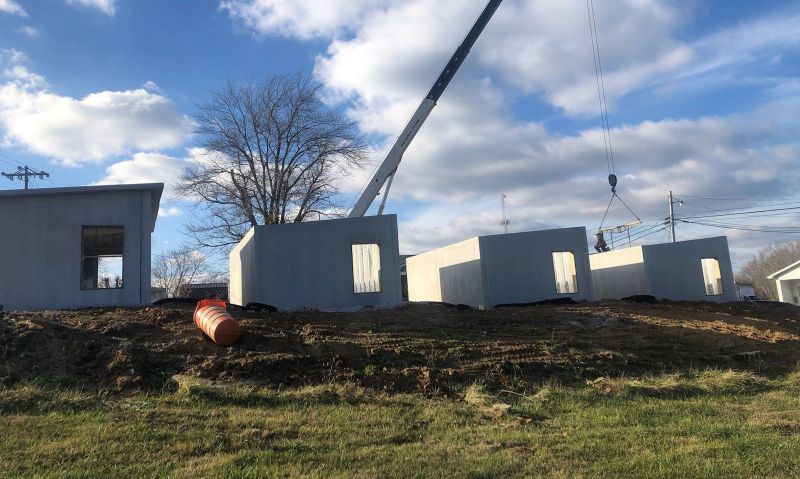
The 100% donated homes sit adjacent to Post 207 in Spencer, Tenn., to provide veterans a safe place to live as they find employment, health and financial stability.
Homeless veterans in Tennessee now have shelter as they find employment, health care and financial stability. Four tiny single-unit homes have been built on property owned by and adjacent from American Legion Post 207 in Spencer, Tenn. The vision for the homes was that of Post 207 Commander Hansel Moore. The result, coined VITAL (Veterans In Transition American Legion), was made possible from Post 207’s relationships within the community.
“We are extremely excited about this,” Moore said. “It’s a culmination of about three years of planning and a lot of hard work. I’m proud of this. I’m proud that we were able to do it through The American Legion.”
The idea for housing homeless veterans came to Moore, an Air Force veteran and VA nurse, after meeting one who shared that he lived in the woods alongside several other veterans. Moore felt “it wasn’t right that I’ve got 12 brothers and sisters that are living in the woods” about five miles from his house.
Property next to the Legion post was for sale. “And the only purpose it was serving was to grow grass,” said Moore, who pictured tiny homes on it for homeless veterans. But the property cost was more than the post could afford. That was until a veteran from out of state visited Post 207 and saw what the post could do with more land.
Post 207 underwent renovations several years ago and is the first Legion post in Tennessee to put in VA telehealth access for use by veterans in the rural area. The veteran told Moore the post was going to grow and asked how much the property for sale was.
“I said how much they want for it or how much do you think I can get it for? He said, ‘How much do you think you could get it for?’ I told him and this guy, who I really didn’t know, reached into his pocket and pulled out his checkbook (and wrote a check for more than the property). He said, ‘I want you to go tomorrow and buy that property.’
“It’s just incredible, the whole process, and it’s been a group effort.”
The 400-square-foot single unit homes feature a living room, bedroom, kitchenette and bathroom. They are built out of concrete, even the roof. “These are going to last long after I’m gone,” Moore said. “And they look beautiful.”
The homes were built from 100% donations.
“It was just through building relationships with people in the community and people who have a heart for veterans,” Moore said.
Once the tiny homes started going up, phone calls started pouring in. People wanted to help. One community member, who renovates buildings, called Moore offering leftover material such as bathroom sinks, mirrors and light fixtures. Brand new windows were also donated.
Since the homes sit on a hill that slopes to the Legion post, the plan is to put in a gutter system on each unit where rainwater will be collected in large bins. The rainwater will then be used for a victory garden that the veterans and Legion members will use.
“You step back and it’s kind of overwhelming, but in a good way,” Moore said. “I think we just lit a fuse, and it’s going to be pretty cool what comes next.”
The American Legion has partnered with other organizations and several resources to identify homeless veterans. Veterans will be vetted beforehand and live in the homes for up to one year. During that time, Post 207 members and other community organizations will assist the veterans with a pathway to long-term stability.
“It’s not just housing … we have social workers involved, we have medical people involved, we have chaplains, we have financial planners, we have job placement individuals specifically for veterans. We will start working with them on day one to meet their mental health and physical health needs. Then we will work on their financials and hopefully within a year they'll be able to put enough funding away, and they will be able to live independently and move on with a very successful life.”
Moore hopes the tiny homes built next to Post 207 “is a catalyst for Legion posts across the country to say, ‘It can be done.’ Because realistically if we (a rural county of 6,000 people) are able to do it where we are, it can happen. You have to get out there and make those relationships and that’s what this is all about. It was the culmination of relationships and doing what you say you’re going to do.”
- Community

